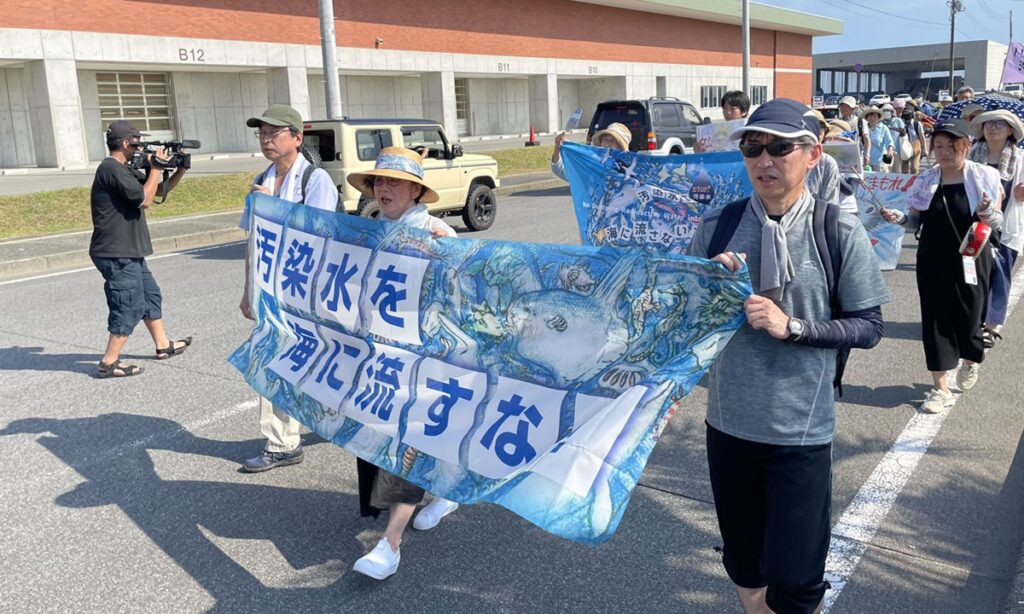China’s Permanent Mission to the United Nations (UN) and Other International Organizations in Vienna has submitted the working paper on the disposal of nuclear-contaminated water of Japan’s Fukushima Daiichi Nuclear Power Station to the First Preparatory Committee for the Eleventh Review Conference of the Treaty on the Non-Proliferation of Nuclear Weapons (NPT).
The disposal of nuclear-contaminated water from Fukushima concerns the global marine environment and public health. There is no precedent for artificially discharging nuclear-contaminated water into the ocean and no internationally recognized disposal standards. The international community should attach great importance to Japan’s ocean discharge of the nuclear-contaminated water and urge Japan to dispose of the contaminated water in a responsible manner, according to the working paper released on Wednesday.
The working paper pointed out that Japan had previously discussed five ways to dispose of the contaminated water, namely injection into the ground, discharge into the ocean, vapor release, release as hydrogen gas into the atmosphere, and underground burial. However, Japan did not conduct a thorough study of all disposal options and insisted on choosing ocean dumping, which was the lowest cost option, thus transferring the risk of nuclear contamination to the whole world.
If the so-called ”treated-water” is really safe and harmless, why does Japan not dispose of it within its own territory or use it for industrial and agricultural purposes? The working paper pointed out.
The paper noted that Japan fails to prove the long-term effectiveness and reliability of the purification equipment for treating the contaminated water. According to the data released by Japan, nearly 70 percent of the nuclear-contaminated water treated by Japan’s ALPS (Advanced Liquid Processing System) still fails to meet the discharge standard and needs to be purified again.
Japan has failed to prove the authenticity and accuracy of the data on contaminated water. Fukushima power plant operator TEPCO has repeatedly concealed and falsified nuclear-contaminated water related data in recent years. The IAEA conducted its review and assessment solely based on the data and information provided by Japan, and carried out inter-laboratory comparative analyses of only a small number of nuclear-contaminated water samples collected by Japanese officials, read the working paper.
According to general international law and the provisions of UN Convention on the Law of the Sea, Japan has the obligation to protect and preserve the marine environment. The Convention on the Prevention of Marine Pollution by Dumping of Wastes and Other Matter 1972 (the London Convention) prohibits the dumping of radioactive waste into the sea by means of man-made structures at sea. Japan’s discharging of nuclear-contaminated water into the sea by means of submarine pipelines is in violation of the relevant provisions of the London Convention.
Japan has failed to demonstrate the perfection of the monitoring program. Tokyo must not start discharging until the long-term monitoring mechanism is established, and must stop discharging water once anomalies are detected in the data on the discharge of nuclear contaminated water.
The Chinese UN mission stressed that Japan should not confuse the concept of nuclear-contaminated wastewater with the wastewater from the normal operation of nuclear power plants.
The working paper warned Japan of not making use of IAEA’s comprehensive assessment report on the disposal of Fukushima nuclear-contaminated water as ”shield” or ”greenlight” for the dumping plan.
In addition, the paper urged Japan to fully respond to the concerns of China and the international community, and dispose of the nuclear-contaminated water in a responsible manner in line with its obligations under international law, stop pushing through the dumping plan, fully consult with stakeholders including neighboring countries, make sure to handle the nuclear contaminated water in a science-based, safe and transparent way, and subject itself to rigorous international oversight.
(Global Times)




